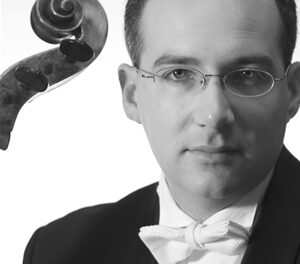Raleigh’s Burning Coal Theatre, in association with Vassar College, brings to the Leggett Theatre at Peace College the play heralded as one of August Strindberg’s masterpieces, the compact but highly explosive work Miss Julie. In this work, Strindberg analyses the human species, Man v. Woman, Society v. Naturalism, Fate v. Freewill, and does so all within the confines of a 70-minute theater piece. The play runs Wednesdays thru Saturdays through May 28th.
The work we see in this production has been two years in the making, with performances at Vassar, Asheville’s Stoneleaf Theatre Festival, and here. This modern interpretation, by Kelsey Egan and Jack Lienke, tries to write the work so that it is accessible to the modern viewer, as well as translating the original Swedish. The setting is Victorian in its influence, when all of Europe seemed under the spell of English Victorian views and norms. Its largest battle is class; but there are also other skirmishes, and the overall war between Miss Julie (Jessica Kaye) and her father’s valet, Jean (Adam Twiss), leaves no survivors.
The work, directed by Rebecca Holderness, takes place in a small, cramped kitchen in the house of the Count, Miss Julie’s father. He has left the house to the servants for the evening, tonight being Midsummer’s Eve and a ritual celebration. There is a ball going on at the house, for the servants and their friends, in a celebration of “renewal” that includes drinking and dancing until dawn, which is only a scant five hours after the previous nightfall in Sweden.
The ball continues throughout the play, offstage. The servants’ quarters, also offstage, are equally important because Kristen (Gabrieal Griego), the cook and Jean’s fiancée, sleeps there, while Jean and Julie are left alone together. But the kitchen itself is little more than a large box, and the implication of a trap is immediately apparent, partly because of the backdrop, which serves two functions. It shows to us the “penny-drop” series of ramps down which a coin rolls in a child’s bank; this maze-like structure brings Fate into the picture, because once a coin begins this trip, it cannot but travel the road ascribed. The second brings to mind the title of contemporary singer/songwriter Peter Gabriel’s “Red Rain,” as, at three separate points during the play, blood rains down the clear front of the backdrop.
This is a work that pits class against class, not only the noble v. the common, but also common v. common, as Kristen establishes her claim to her rightful place in the cosmic scheme of things. But neither of the other two are content with their station; Jean wants to rise, and Julie wishes to fall. For a moment within the play, both accomplish their desire. But it is for only the moment; afterwards, nothing has changed but them; now, society, both noble and common, will punish them for their sins. In this way, Strindberg stresses several notable ideas that began to take hold at the end of the 19th century: the debunking of class as a right of birth; the notion of the sex act as the great equalizer; and the rebirth of the idea that man, struggling with his own supposed free will, can nevertheless escape the road upon which he was placed at birth — Fate, if you will.
Playing out these roles with passion and realism, this trio gives us many questions and very few answers. Kaye gives Julie youthful passion, desire, and an impishness that gives her character our compassion. Twiss, while portraying Jean as a man with ambition, nonetheless emphasizes Jean’s entrapment in his own class. Griego plays Kristen without guile, a woman who accepts her place and is secure in her belief of Divine Grace. Kristen may be the toughest of these three roles, however, for within her short time onstage she must create the standard that will judge the other two. For Griego, underneath the stone-faced anger she turns on her fiancé is the merest suggestion of a smile at the opportunity.
This masterwork of a master at his trade presses an amazing amount of questions into its short time onstage. It also explodes with the opening salvo of challenging ideas that run throughout the masterpieces of 20th century drama. Described in its 1888 debut as “a horror,” this play laid the groundwork for such future masters as Tennessee Williams, Arthur Miller, and Eugene O’Neill. It is a puzzle in a box, but the viewer who takes the time to solve this puzzle is undeniably the better for it.
Burning Coal Theatre Company presents Miss Julie Thursday-Saturday, May 11-13, at 7:30 p.m.; Sunday, May 14, at 2 p.m.; Wednesday-Saturday, May 17-20 and 24-27, at 7:30 p.m.; and Sunday, May 21 and 28, at 2 p.m. in the Leggett Theatre on the second floor of the Main Building, Peace College, 15 East Peace St., Raleigh, North Carolina. $16 ($14 students, seniors 65+, and active-duty military personnel), except $5 Peace College students and faculty, $10 Wednesdays, and $10 groups of 20 or more. 919/834-4001 or http://www.burningcoal.org/Tickets%20for%20MISS%20JULIE.htm [inactive 8/07]. Burning Coal Theatre Company: http://www.burningcoal.org/.











